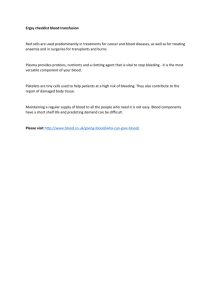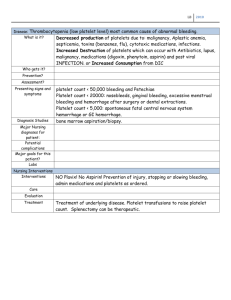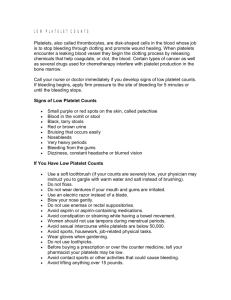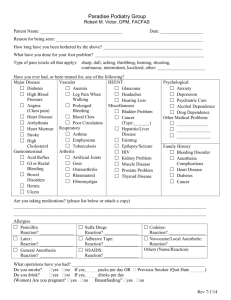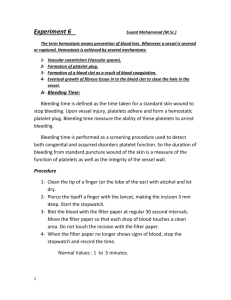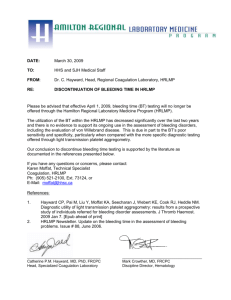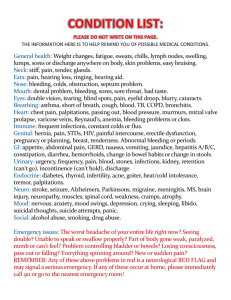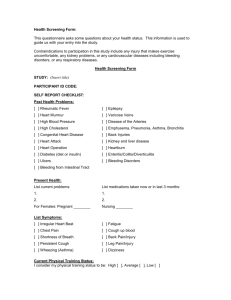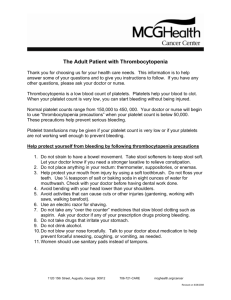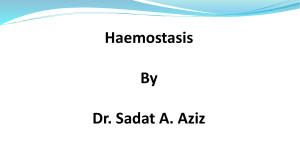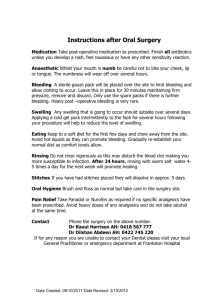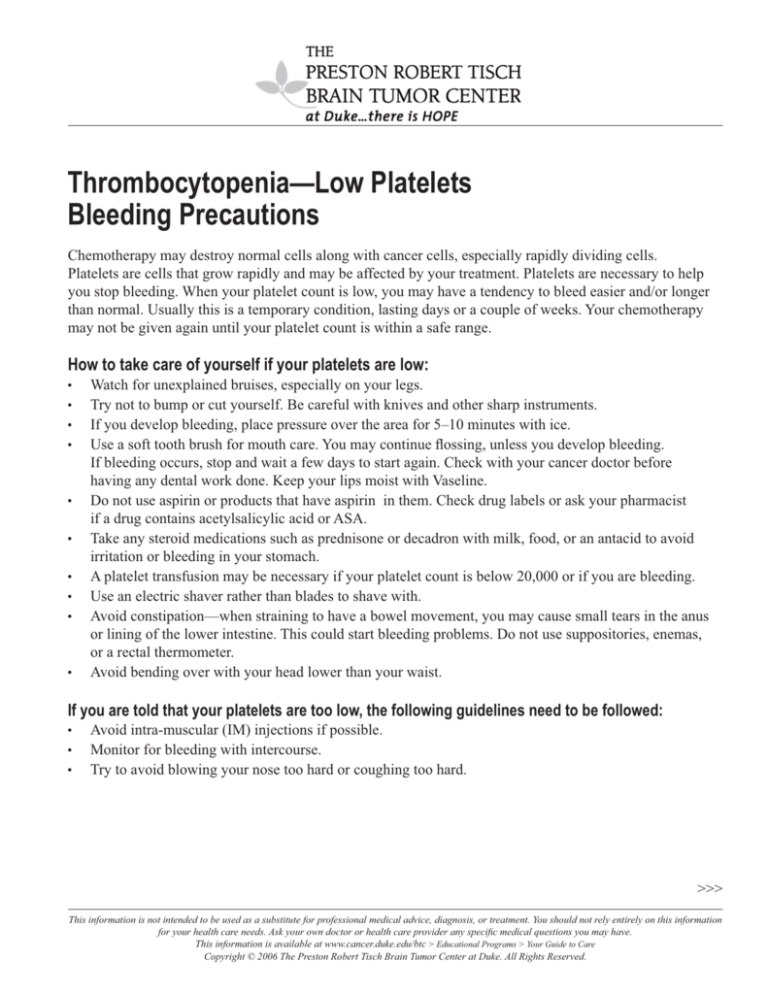
Thrombocytopenia—Low Platelets
Bleeding Precautions
Chemotherapy may destroy normal cells along with cancer cells, especially rapidly dividing cells.
Platelets are cells that grow rapidly and may be affected by your treatment. Platelets are necessary to help
you stop bleeding. When your platelet count is low, you may have a tendency to bleed easier and/or longer
than normal. Usually this is a temporary condition, lasting days or a couple of weeks. Your chemotherapy
may not be given again until your platelet count is within a safe range.
How to take care of yourself if your platelets are low:
•
•
•
•
•
•
•
•
•
•
Watch for unexplained bruises, especially on your legs.
Try not to bump or cut yourself. Be careful with knives and other sharp instruments.
If you develop bleeding, place pressure over the area for 5–10 minutes with ice.
Use a soft tooth brush for mouth care. You may continue flossing, unless you develop bleeding.
If bleeding occurs, stop and wait a few days to start again. Check with your cancer doctor before
having any dental work done. Keep your lips moist with Vaseline.
Do not use aspirin or products that have aspirin in them. Check drug labels or ask your pharmacist
if a drug contains acetylsalicylic acid or ASA.
Take any steroid medications such as prednisone or decadron with milk, food, or an antacid to avoid
irritation or bleeding in your stomach.
A platelet transfusion may be necessary if your platelet count is below 20,000 or if you are bleeding.
Use an electric shaver rather than blades to shave with.
Avoid constipation—when straining to have a bowel movement, you may cause small tears in the anus
or lining of the lower intestine. This could start bleeding problems. Do not use suppositories, enemas,
or a rectal thermometer.
Avoid bending over with your head lower than your waist.
If you are told that your platelets are too low, the following guidelines need to be followed:
•
•
•
Avoid intra-muscular (IM) injections if possible.
Monitor for bleeding with intercourse.
Try to avoid blowing your nose too hard or coughing too hard.
>>>
This information is not intended to be used as a substitute for professional medical advice, diagnosis, or treatment. You should not rely entirely on this information
for your health care needs. Ask your own doctor or health care provider any specific medical questions you may have.
This information is available at www.cancer.duke.edu/btc > Educational Programs > Your Guide to Care
Copyright © 2006 The Preston Robert Tisch Brain Tumor Center at Duke. All Rights Reserved.
Tell your doctor or nurse:
•
•
•
•
•
•
•
•
•
if you have a nose bleed
if you see blood in your bowel movement, urine, sputum, or in your vomitus
if you have any vision changes
if you notice popped blood vessels in your eyes
if you have sudden onset of headache or dizziness
if you have headaches not relieved with Tylenol
if you notice petechiae—little red blood blisters under your skin, especially on legs or abdomen
if bleeding continues after putting pressure to area for 10–15 minutes
if you have a major injury or continued bleeding, go to the nearest emergency room
What is a normal platelet count?
A normal platelet count is around 150–450,000. A count higher than 100,000 is good for chemotherapy
patients.
Copyright © 2006 The Preston Robert Tisch Brain Tumor Center at Duke. All Rights Reserved.

